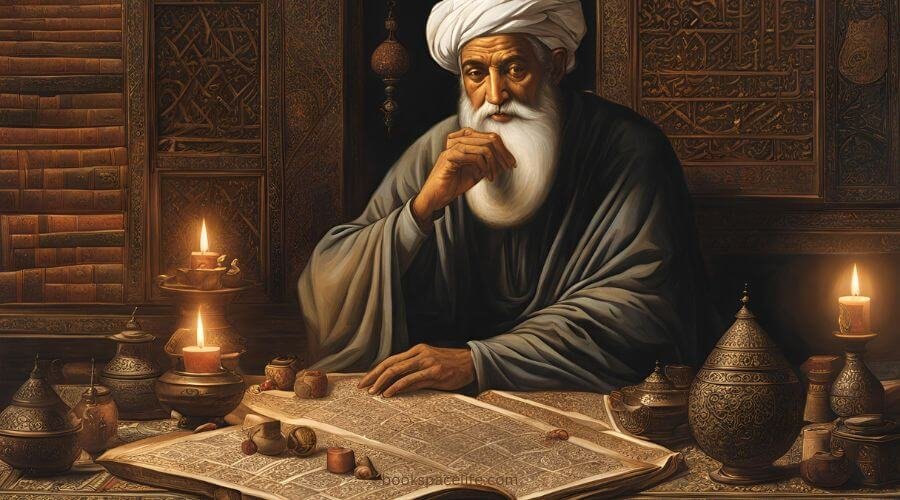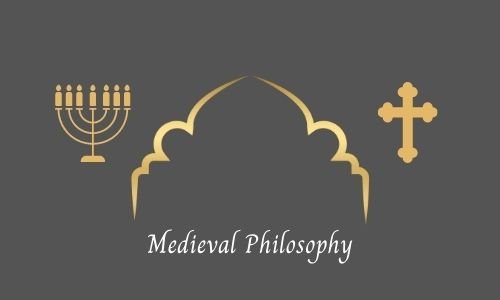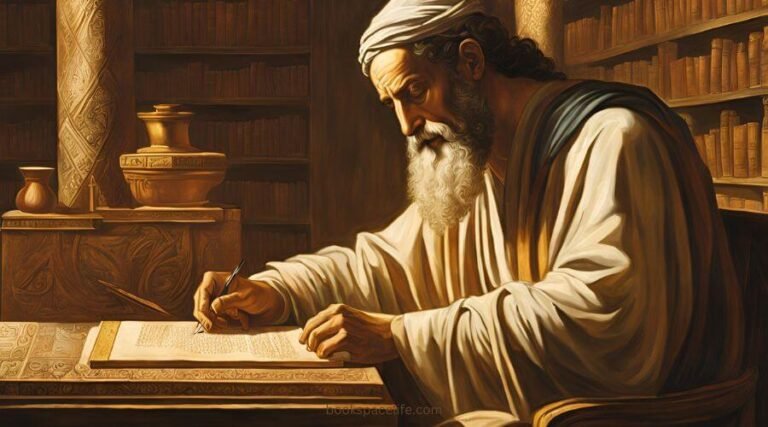Philo of Alexandria
Al-Maturidi : The Father of Sunni Rational Theology
Abu Mansur al-Maturidi (853–944 CE) is one of the most influential figures in the history of Islamic thought, particularly in the development of Sunni theology.
As the founder of the Maturidiyya school of theology, Al-Maturidi’s contributions shaped Islamic philosophy and had lasting effects on the religious, theological, and intellectual landscapes of the Muslim world.
His innovative approach to rational theology provided a framework for reconciling faith and reason, and his impact continues to resonate through contemporary Islamic thought.
Table of Contents
(1) Early Life and Education
Al-Maturidi was born around the year 853 CE in Maturid, a town in what is now the modern-day Uzbekistan, within the region known historically as Transoxiana.
This region was a cultural and intellectual hub during the medieval Islamic period, connecting the intellectual currents of the Persian, Turkic, and Arab worlds. It was here that Al-Maturidi grew up, benefiting from the vibrant intellectual climate.
Al-Maturidi’s early education was deeply rooted in the Islamic tradition. His studies focused on classical Islamic disciplines, including fiqh (Islamic jurisprudence), hadith (Prophet Muhammad’s sayings), theology, and Arabic grammar.
Al-Maturidi was influenced by the major schools of Islamic thought that were developing during his time, particularly the Ash’ari school of theology, founded by Abu al-Hasan al-Ash’ari.
However, while Al-Maturidi was aligned with the Sunni tradition, his intellectual path diverged from Ash’ari’s in several key theological matters, giving rise to a distinct school of thought that would later become known as Maturidism.
(2) Early Travels and Intellectual Development
Al-Maturidi’s intellectual development was not confined to his hometown of Maturid. Like many scholars of his time, he traveled to cities like Baghdad, the intellectual center of the Islamic world, where he would have encountered some of the brightest minds of the era.
There, he would have engaged with scholars from different schools of thought, including the Mu’tazila, a rationalist theological school, and the Ash’ari school, which sought to balance reason with revelation.
Despite these encounters, Al-Maturidi developed a reputation for his independent thought and critical engagement with existing theological ideas.
He synthesized various strands of Islamic intellectual traditions while addressing the growing tensions between reason and faith that had emerged in the wake of earlier philosophical movements.
In his writings, he sought to clarify and defend the core principles of Sunni Islam, emphasizing the role of rationality in understanding divine truth while maintaining firm adherence to the Quran and Hadith as primary sources of knowledge.
(3) Al-Maturidi’s Philosophy and Theology
Al-Maturidi’s primary work, “Kitab al-Tawhid” (The Book of Monotheism), is where he outlined his theological principles.
In this work, he made key contributions to Sunni Islamic theology, particularly in how humans can attain knowledge of God and His attributes, as well as how they can understand the broader cosmic order.
Al-Maturidi’s philosophical framework emphasized the importance of both reason and revelation in guiding believers to the truth.
Al-Maturidi’s main theological positions were grounded in his defense of divine omnipotence and the rational ability of human beings to comprehend certain aspects of the divine.
He argued that reason was not only compatible with faith but also essential in understanding religious truths.
While the Ash’ari school, which was founded by Abu al-Hasan al-Ash’ari, also emphasized divine omnipotence and the mystery of God’s will, Al-Maturidi extended the scope of human rationality in a more expansive way.
Here are some of the key elements of his theology:
(i) The Role of Reason in Understanding Religion
Al-Maturidi believed that human beings have the inherent ability to distinguish between good and evil through reason.
He contended that rationality could help explain the attributes of God, such as His unity (Tawhid) and justice. According to Al-Maturidi, reason should not be discarded in favor of blind obedience, as reason aids in understanding divine commandments, which are essential to the human condition.
(ii) Free Will and Human Responsibility
Al-Maturidi’s philosophy gave considerable importance to the concept of free will.
He advocated that human beings are responsible for their actions and are accountable for their choices in life.
His view on human free will marked a significant departure from other theological schools that either denied or diminished the human role in making moral choices.
(iii) Divine Justice and the Problem of Evil
Al-Maturidi also grappled with the age-old question of evil and suffering.
He maintained that God’s justice is absolute and that all suffering or evil that humans experience serves a greater divine purpose.
Al-Maturidi also rejected the deterministic approach of some theological schools, which argued that everything, including human actions, was preordained by God.
(iv) The Nature of Faith
Al-Maturidi’s theology placed significant emphasis on the concept of faith (iman) and how it relates to knowledge of God.
For Al-Maturidi, faith was both a matter of belief and understanding.
He argued that faith cannot be solely based on blind belief, but must also involve an understanding of God’s attributes, laws, and commands through reason and intellect.
(v) The Relationship between Faith and Works
Al-Maturidi’s philosophy stressed the inseparable relationship between faith and action.
While many of his contemporaries focused on the spiritual aspects of faith, Al-Maturidi asserted that faith must manifest itself in moral and ethical actions, which reflect the believer’s understanding of God’s will. This concept remains central to his theological system.
(4) Influence and Impact
Al-Maturidi’s impact on Islamic thought cannot be overstated. His rationalist approach to theology helped bridge the gap between the mutazilite (rationalist) and asharite (mystical) schools of thought, creating a more balanced approach to understanding the divine and the human condition.
Al-Maturidi’s followers, known as the Maturidiyyah, developed into one of the two main branches of Sunni theology, alongside the Ash’ari school.
His influence spread across a wide geographical area, particularly among the Turkic and Central Asian Muslims.
As Islamic empires expanded into the regions of Turkey and Central Asia, Maturidism became the dominant theological school in these areas.
Furthermore, Al-Maturidi’s teachings had a profound effect on the development of Islamic jurisprudence (fiqh), as his ideas about reason and ethics influenced the way scholars approached Islamic law.
His ideas on the relationship between faith and reason also provided a framework for subsequent thinkers in both the Islamic world and the Western philosophical tradition, influencing later intellectual movements.
Al-Maturidi’s ideas on free will, divine justice, and the relationship between reason and revelation contributed to the development of Islamic philosophy and mysticism.
His rational approach to understanding the universe was part of the intellectual foundation that shaped the Golden Age of Islam, particularly during the Seljuk and Ottoman periods.
(5) Conclusion
Al-Maturidi’s intellectual contributions represent a watershed moment in Islamic thought.
His synthesis of reason and faith created a lasting legacy in Sunni theology and philosophy.
His defense of rational theology, particularly the rational understanding of God’s attributes and the human condition, has had a profound influence on subsequent generations of scholars, both within the Islamic tradition and beyond.
Through his theological works, particularly the Kitab al-Tawhid, Al-Maturidi laid the groundwork for future discussions on human agency, divine justice, and the role of reason in religious practice.
As a result, his ideas continue to shape contemporary Islamic thought, demonstrating the lasting relevance of his contributions to the broader discourse on faith, reason, and morality.








